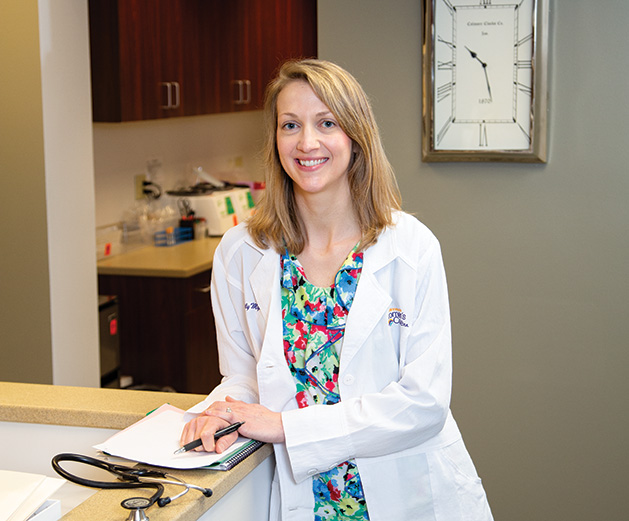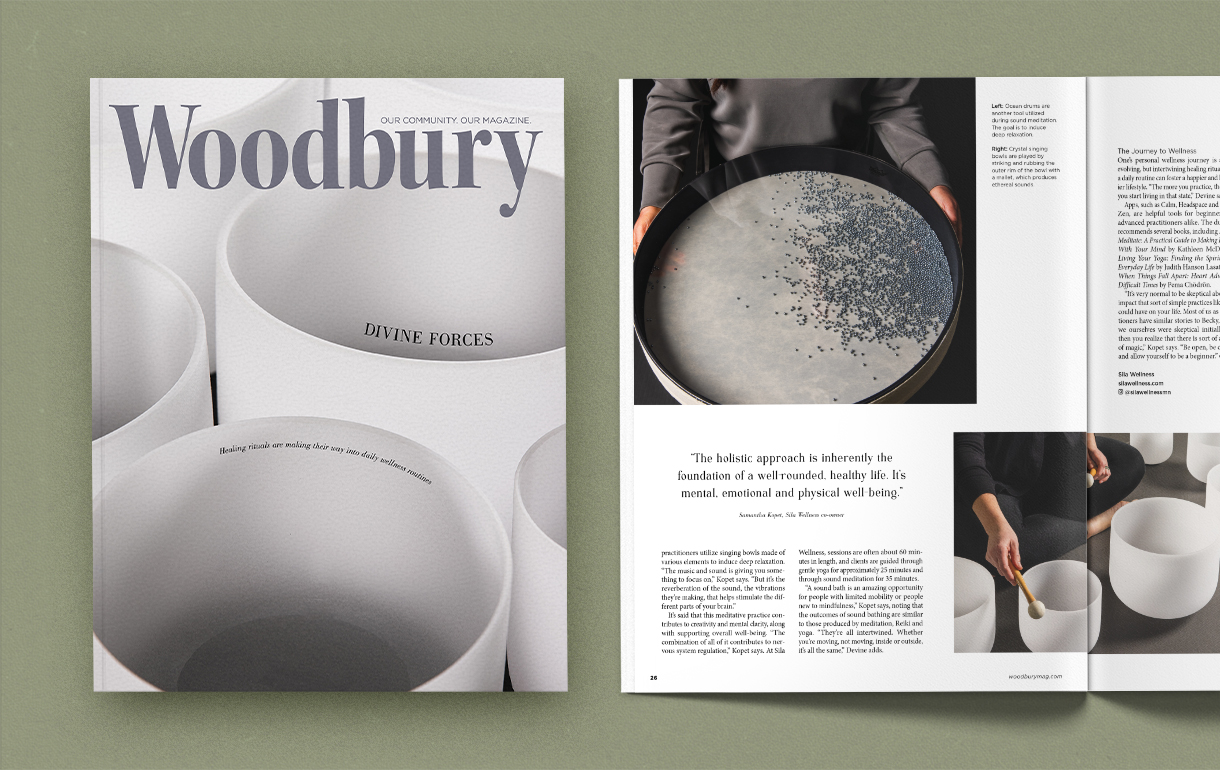
Dr. Emily Meyer, a women’s pelvic health expert at Minnesota Women’s Care. Photo: Joel Schnell
Woodbury physician focuses on women’s pelvic health— and breaking taboos.
Growing up in Woodbury, Emily Myer, MD, knew she wanted a career helping others. “I knew I wanted to be a doctor starting in high school,” she says. “I wanted to be able to help people [and] solve problems, and I really liked math and science.” Myer graduated from high school at Woodbury’s New Life Academy, and went on to do big things in her undergraduate and post-grad life: college at Gustavus Adolphus; medical school in Albany, NY; an obstetrics-gynecology residency at Eastern Virginia Medical School; and her urogynecology training at Johns Hopkins School of Medicine.
Did we say “urogynecology”? Yep. It means that Myer is an expert in women’s pelvic health. She says, “It’s a newer subspecialty. Providers with a background in urology or gynecology can become board-certified in FPRMS (female pelvic medicine and reconstructive surgery).” Board-certified urogynecologists like Myer must complete additional FPRMS training after their residency. They treat pelvic floor disorders, like urinary incontinence, overactive bladder, pelvic organ prolapse and others. “I really fell in love with the field thanks to my [mentor] Dr. Karen McShane,” says Myer. “Urogynecology is all about improving quality of life and function…The care I can provide helps women to live their best lives.”
Myer joined Minnesota Women’s Care in Woodbury in 2018. The clinic includes urogynecologists, obstetricians, nurse midwives and other women’s-health providers. “It’s great being part of a team that can care for women in every way,” says Myer, who lives in town with her husband (a trauma surgeon at Regions Hospital) and their 2-year-old daughter Esther. “We are glad to be back in Woodbury and part of the community,” she says. “I enjoy spending time with my family and being outdoors, hiking and camping, when we can.”
We asked Myer, if she could share some information with all women about their bladder and pelvic health, what would it be? First, she says, let’s try to break the stigma of talking about pelvic floor disorders (PFDs). “One in five women will be treated for a PFD in her lifetime,” Myer explains. “It’s okay to talk about it! Many of my patients tell me they were surprised when they finally talked to their friends [about] being treated for a PFD, and they found out their friend had been struggling with the same thing.” She also mentions the difference between “common” (which PFDs are) and “normal.” Myer says, “I get upset at incontinence pads commercials that say leaking is ‘normal.’ Yes, it’s common, but it’s not something you have to live with if you don’t want to.” Myer encourages women to speak with their primary care provider, and self-refer (or ask for a referral) to a urogynecologist if they have questions about a PFD or experience one of the “three Bs:” vaginal bulge, bothersome bladder leakage, or accidental bowel leakage.
Myer says there’s a slight misconception that all treatments for PFDs are surgical. “I think some patients delay seeking care because they think it means they’ll have to have surgery,” she says. “It’s important for women to know surgery is an option, but it’s not the only option.” Don’t wait to ask for help, she adds. “As women, we juggle a lot and don’t always take the time to care for ourselves. If you’re bothered by your symptoms, talk to someone. There are a lot of options to help you feel better.”
If you’re wondering about a pelvic floor disorder and want more info about symptoms and treatments, Dr. Myer recommends visiting the American Urogynecology Society’s website at voicesforpfd.org.
Minnesota Women’s Care
1687 Woodlane Drive
651.600.3035






















